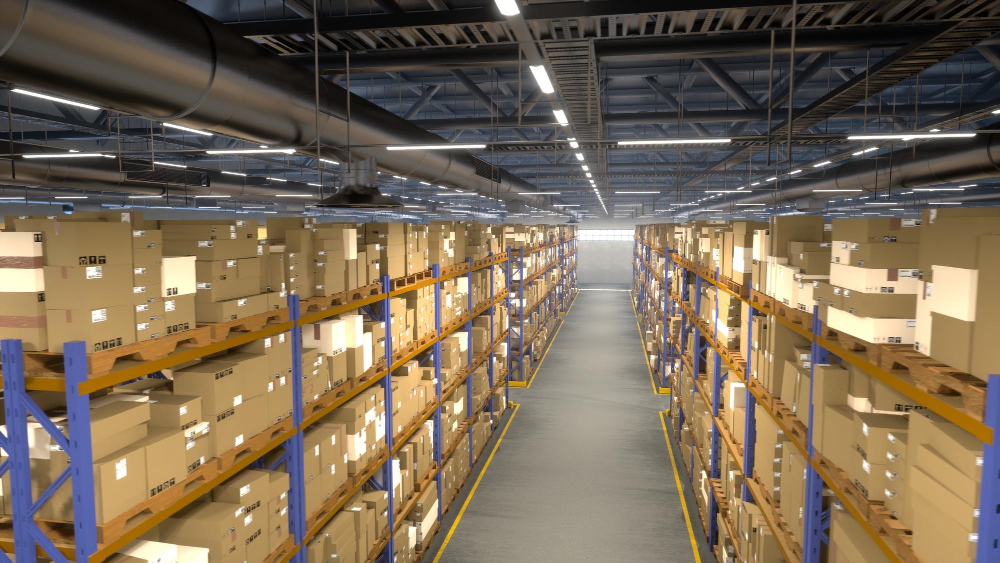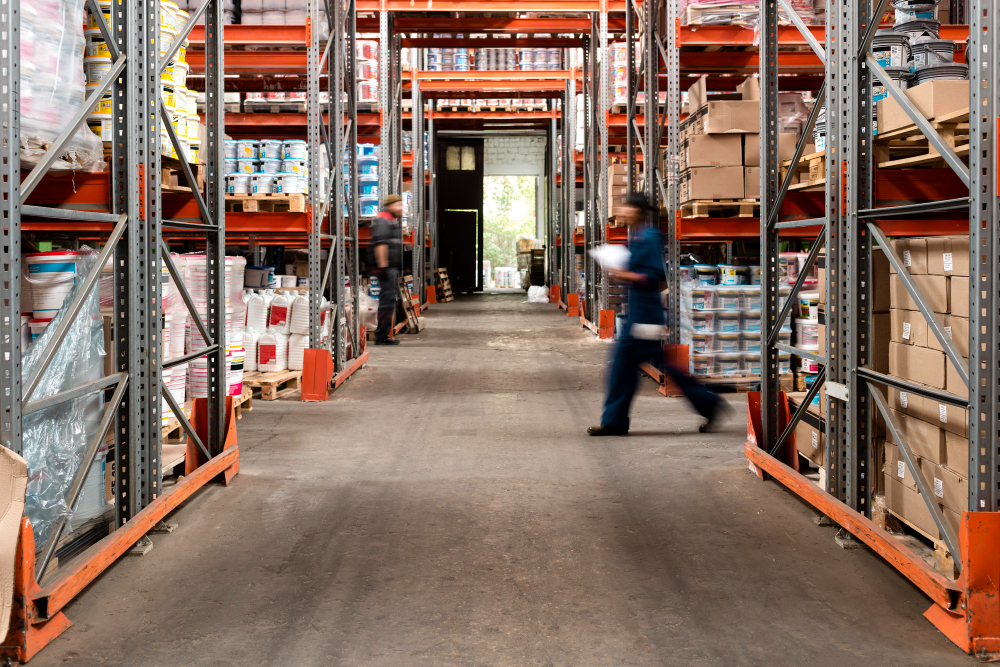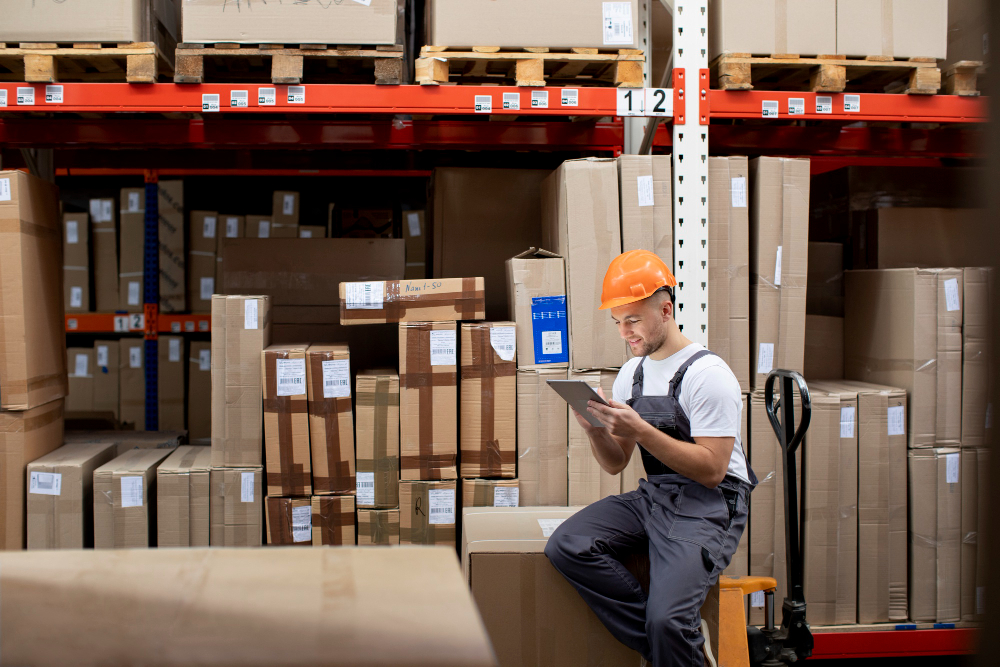Companies face mounting pressure to deliver products faster, cheaper, and more efficiently. That’s where 3PL logistics comes in. But what is 3PL logistics, and why should it matter to your business?
If you’ve ever wondered what a 3PL logistics company is, or asked yourself what 3rd party logistics is in the bigger picture of supply chains, this guide will give you a clear, actionable breakdown.
Key Takeaway
✔ 3PL logistics is the outsourcing of warehousing, transportation, and fulfillment to specialized providers.
✔ A third-party logistics company helps businesses cut costs and scale operations efficiently.
✔ Key 3PL services include warehousing, order fulfillment, transportation, inventory management, and returns.
✔ Businesses use 3PLs for expertise, scalability, cost savings, and better customer service.
✔ Choosing the right 3PL requires reliability, transparency, strong tech, and clear agreements.
Table of Contents
What is 3PL Logistics?
At its core, what is 3PL logistics? It’s a business model where companies rely on outside experts to handle critical logistics functions. The demand for these services continues to rise, with the third-party logistics market projected to grow to $1.48 trillion by 2030.
Instead of managing warehousing, shipping, and returns in-house, businesses collaborate with specialists who have the infrastructure and expertise to streamline operations.
A 3PL logistics company is an external partner dedicated to moving, storing, and managing goods on behalf of other businesses.

What is a 3PL Logistics Company?
A 3PL logistics company—short for third-party logistics—is an external provider that helps businesses manage the movement, storage, and distribution of goods. Instead of handling everything in-house, companies outsource critical functions like warehousing, inventory management, transportation, and order fulfillment to a 3PL.
These providers act as logistics experts, offering the infrastructure, technology, and industry know-how that most businesses can’t (or don’t want to) build themselves. By partnering with a 3PL logistics company, businesses reduce costs, scale faster, and deliver products to customers more efficiently.
In today’s competitive market, a reliable 3PL isn’t just a vendor—it’s a strategic partner that streamlines supply chains and strengthens customer satisfaction.
What Does a 3PL Do?
So, what does a 3PL do in practice? A 3rd party logistics service provider can manage every aspect of product distribution—from receiving inventory to fulfilling customer orders. Their services often extend to what is 3PL distribution, which includes warehousing, freight management, and technology-driven tracking.
Ultimately, these companies take on the burden of complex supply chain tasks, freeing up businesses to focus on growth. For many businesses, knowing what does 3PL stand for in logistics is the first step toward understanding the full value of outsourcing supply chain management.
Key Services of a 3PL
These solutions explain what is 3rd party logistics in action—real services that directly support business operations
- Warehousing: Storage solutions that ensure your products are safe, organized, and ready to ship.
- Order Fulfillment: Handling picking, packing, and shipping to ensure seamless customer experiences.
- Transportation: Managing freight, carrier relationships, and last-mile delivery for maximum efficiency.
- Inventory Management: Real-time tracking, demand forecasting, and stock optimization.
- Reverse Logistics: Processing returns, refurbishments, and recycling in a cost-effective way.
- Logistics Technology: Leveraging tools like Warehouse Management Systems (WMS) and automation for transparency and speed.
- Value-Added Services: Extras such as kitting, labeling, or custom packaging that enhance product delivery.
Why Businesses Use 3PLs
Companies often ask what is a third party logistics provider and why they’re so valuable.
- Focus on Core Competencies: Outsourcing logistics lets businesses prioritize marketing, sales, and growth.
- Expertise and Experience: A 3rd party logistics service provider brings industry know-how and proven systems.
- Scalability: Businesses can adapt to seasonal fluctuations and growing demand without expanding infrastructure.
- Cost Savings: Eliminating the need for warehouses and transportation fleets reduces overhead.
- Improved Customer Service: Faster delivery, accurate orders, and flexible fulfillment create happier customers.
What is an Example of 3PL?
A practical example of what a third party logistics provider is can be found in e-commerce. Online retailers often rely on 3PLs to store inventory, process orders, and manage shipping. This kind of fulfillment is a great example of what is 3PL distribution, where providers handle storage, shipping, and delivery under one system.
Here in New York, businesses often partner with providers that specialize in urban fulfillment, helping them meet same-day or next-day delivery expectations.
Are 3PLs Worth It?
The short answer: Yes, for most businesses. By outsourcing logistics, companies gain access to expertise and scalability that would otherwise take years to build in-house. Of course, challenges such as integration or provider reliability exist, but the overall ROI often outweighs the risks.
Understanding what is 3rd party logistics helps highlight why outsourcing often delivers better ROI than building in-house systems. In fact, the 2025 Third-Party Logistics Study shows that shippers and providers continue strengthening partnerships to boost efficiency and performance.

What Makes a Good 3PL?
A quality third-party logistics company is transparent, reliable, and adaptable. Look for:
- Strong technology platforms – such as real-time tracking, warehouse management systems, and reporting dashboards.
- Responsive customer service – quick resolution of issues, clear communication, and dedicated account managers.
- Proven track record – case studies, testimonials, and references from clients in your industry.
- Scalability and flexibility – ability to handle seasonal peaks, volume growth, and changing business needs.
- Transparent pricing models – clear breakdown of fees to avoid hidden costs.
Geographic reach – strategically located warehouses and transport networks to speed up delivery.
How to Negotiate with 3PL?
Negotiation is key to building a strong partnership. When working with a 3rd party logistics service provider, businesses should focus on:
- Contract terms – ensure clarity on responsibilities, termination clauses, and renewal conditions.
- Service-Level Agreements (SLAs) – set measurable standards for order accuracy, delivery times, and customer satisfaction.
- Performance metrics – track KPIs such as on-time delivery rates, order fulfillment speed, and return handling.
- Cost structure – clarify storage fees, shipping costs, and value-added service charges upfront.
- Flexibility clauses – include terms that allow adjustments as your business scales or changes.
- Communication cadence – agree on regular reporting and review meetings to maintain alignment.
Frequently Asked Questions (FAQ) About Innovative Warehouse Solutions
What is 3PL distribution?
What is 3PL distribution? It’s the process where a provider manages warehousing, transportation, and delivery as part of the overall supply chain. In short, it’s how goods move from storage to the customer.
What does 3PL stand for in logistics?
What does 3PL stand for in logistics? It means “Third-Party Logistics,” a term used for outsourcing supply chain services. Simply put, it’s logistics handled by an outside company.
What is a third party logistics company?
What is a third party logistics company? It’s a specialized business that helps other companies manage the movement and storage of goods. They act as your outsourced logistics partner.
What is a third-party logistics (3PL) provider?
What is a third-party logistics (3PL) provider? It’s essentially the same as a 3PL company: an external partner managing supply chain operations. Think of them as experts who streamline your supply chain.
What does a 3PL do in e-commerce?
In e-commerce, what does a 3PL do? It handles everything from storing online sellers’ inventory to delivering products directly to customers, streamlining the shopping experience. They make online order fulfillment faster and easier.

Should You Partner with a 3PL Logistics Company?
Now that you know what is a third party logistics provider, you can better evaluate which one fits your company’s needs
The modern supply chain is too complex to manage alone. Outsourcing to the right provider can save costs, improve efficiency, and delight customers.
If you’re ready to take your logistics to the next level, partner with a trusted provider. 3PL Logistics By Best offers expert solutions designed to help businesses like yours thrive. Contact us today to explore how a dedicated logistics partner can transform your supply chain.

